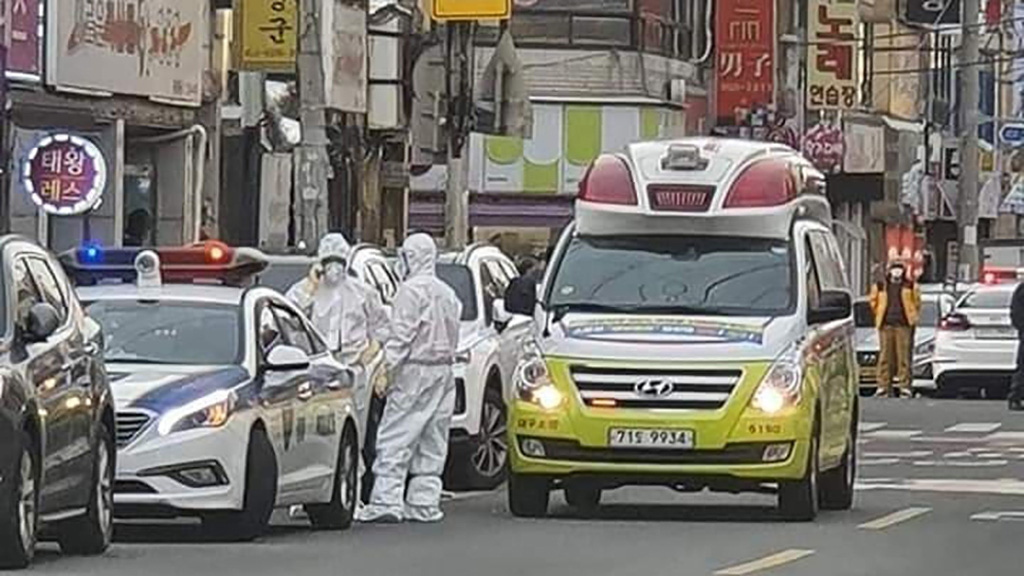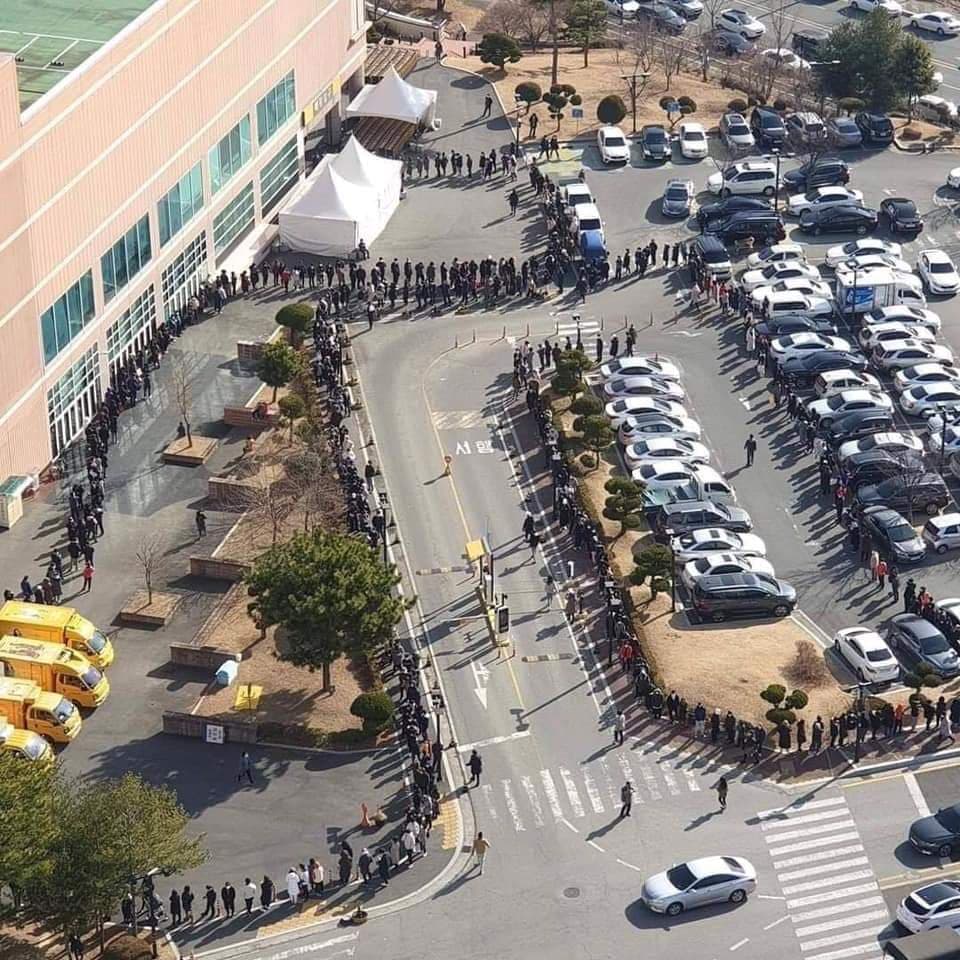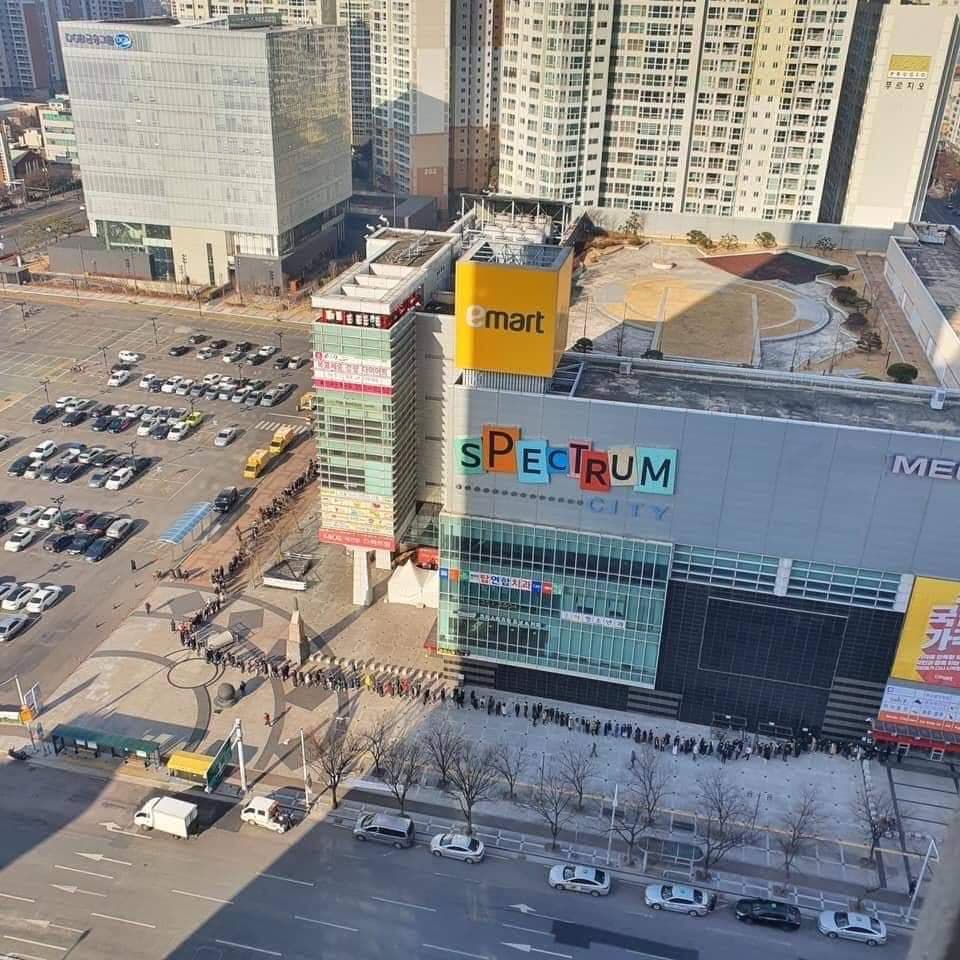As South Korea and Japan continue to report two of the largest national totals of novel coronavirus disease (COVID-19) infections outside of China, several Vietnamese living in the countries told Tuoi Tre News how local people’s daily lives have been affected by the epidemic.
The COVID-19, which first surfaced in the Chinese city of Wuhan in December 2019, has infected over 81,000 people and killed 2,763 globally as of Wednesday morning, according to the South China Morning Post.
South Korea has confirmed 1,146 infections so far, with the majority of them in Daegu, its fourth-largest city, according to Reuters.
Movement restrictions are in place in Daegu as the South Korean government has put the larger Daegu-Gyeongbuk area under special monitoring in a bid to contain the disease’s spread.
Growing concerns
Tran Non Nuoc, a PhD student of New Biology at the Daegu-Gyeongbuk Institute of Science and Technology (DGIST) in Daegu, told Tuoi Tre News streets in the city have become deserted as people refrain from going outside over COVID-19 concerns.
Schools have delayed their spring semester until March, according to a Ministry of Education announcement.
“All people living in this area [Daegu] are restricted from getting out, and those from the outside wanting to get in are also monitored,” Nuoc said.
|
|
| People queue to buy face masks at a supermarket in Daegu, South Korea in this undated photo. Photo: Tran Non Nuoc / Tuoi Tre News Contributor |
DGIST is located some 40 kilometers from the Shincheonji Church of Jesus, which has been linked to the outbreak in Daegu. As a result, the institute has taken measures to protect its students from the epidemic, he said.
The institute has five Vietnamese enrollees. Four of them, including Nuoc, are staying at the school’s dormitory while the other lives off the premises.
Students like Nuoc have been actively staying indoors, avoiding going outside unless absolutely necessary.
Nuoc reckoned the popularity of public transport in South Korea has contributed to the rapid spread of COVID-19 in the country.
Metros and buses are usually overcrowded during rush hours, creating a high risk of the virus spreading via close contact, he explained.
Furthermore, developed transport infrastructure has allowed trips between cities as far as 200 kilometers apart to take only around 2-3 hours, making controlling the epidemic a challenging task, the PhD student added.
Cold weather in Daegu and South Korea is also a concern, he said, as temperatures can drop to 2-5 degrees Celsius at night and are not expected to warm up until late March.
According to the United States’ Centers for Disease Control and Prevention (CDC), it is not yet known whether weather and temperature impact the spread of COVID-19.
|
|
| People queue to buy face masks at a supermarket in Daegu, South Korea in this undated photo. Photo: Tran Non Nuoc / Tuoi Tre News Contributor |
Shincheonji Church under investigation
Trinh Van Ngu from the SoonChunHyang Institute of Medi-Bio Science in Cheonan City told Tuoi Tre News the Shincheonji Church of Jesus has been reported in Korean media as a secretive sect whose members believe they can be healed by faith of illnesses.
As a result, church members who are sick have refused to go to the hospital while still going about their daily lives, which might have contributed to spreading COVID-19, Ngu explained.
Its members reportedly held meetings in Wuhan in December, only stopping when they realized that their community had been hit by COVID-19, according to a South China Morning Post report on Wednesday.
Authorities in South Korea have launched an investigation into possible links between the sect and the Chinese city at the epicenter of the COVID-19 epidemic in China, Ngu said.
The city of Cheonan where Ngu lives is around 90km from Seoul and 200km from Daegu.
According to Ngu, these days people in Cheonan have avoided going out or visiting restaurants and eateries. Whenever they are outside, face masks are a must.
His institute started to monitor the body temperature of students and staff three weeks ago and has advised against assembling in large numbers. Those who have been to Daegu in the past two months are required to declare their detailed itinerary to those in charge.
Calmness in Japan
In Japan, 171 cases of COVID-19 infections have been reported so far, with only one death, according to the South China Morning Post. No official threat alert has been issued by the Japanese government regarding the disease.
Nguyen Truong Duc Hoang from the Hiroshima University Graduate School of Biomedical and Health Science in Hiroshima said public opinion about the disease where he lives is generally calm as no infections have been reported in the city.
In contrast, people in Tokyo and Osaka where COVID-19 patients have been confirmed have started to adopt personal protective measures while going out in public.
With background and experience in biomedicine, Hoang admitted the way Japanese media have been reporting on the epidemic has had him worried, as new cases in Japan are geographically spread out with little to no information on how the patients have contracted the disease.
Japanese Prime Minister Shinzo Abe on Sunday ordered a government task force to prepare for a potential surge in the number of people infected with the new coronavirus as the situation has entered a crucial phase after cases with unknown infection routes were reported in multiple regions of the country, the national broadcaster NHK reported.
While Japan has not announced any specific region as a high-risk area where movement should be restricted, Hoang said he is concerned the epidemic might have spread further than reflected in official reports by looking at how confirmed infections are few and far between.
Even in Hiroshima, where no COVID-19 patients have been confirmed, face masks and hand sanitizer are difficult to find in supermarkets and convenience stores, reflecting a nationwide shortage, he said.
Like us on Facebook or follow us on Twitter to get the latest news about Vietnam!






















































